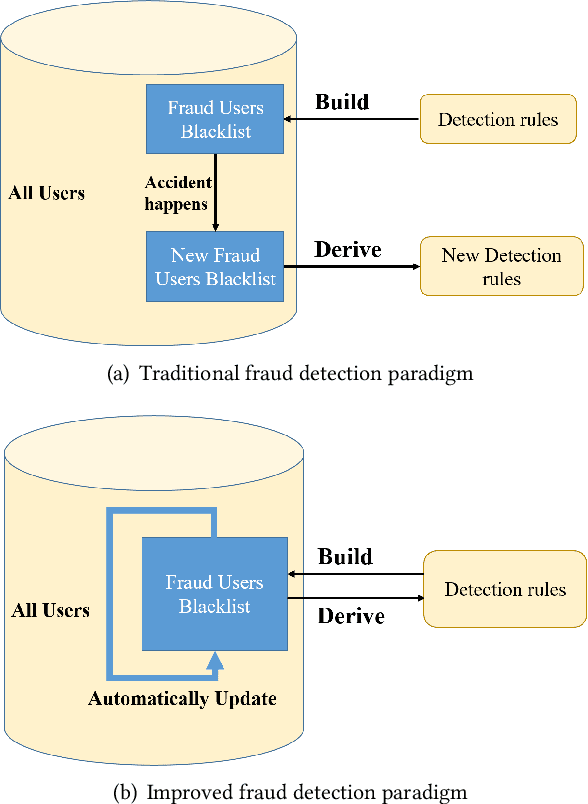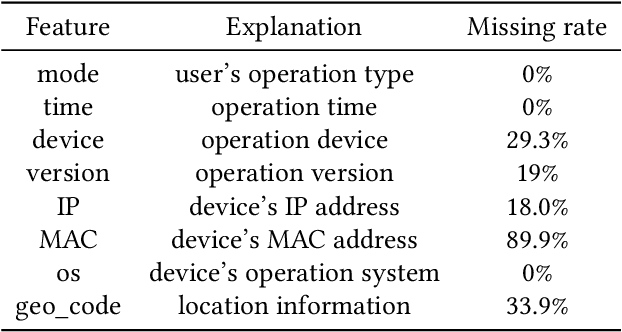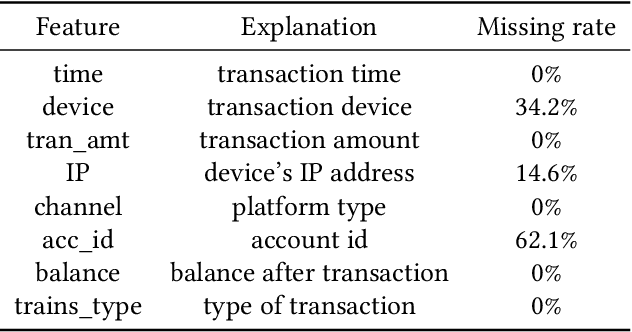FraudJudger: Real-World Data Oriented Fraud Detection on Digital Payment Platforms
Paper and Code
Sep 05, 2019



Automated fraud behaviors detection on electronic payment platforms is a tough problem. Fraud users often exploit the vulnerability of payment platforms and the carelessness of users to defraud money, steal passwords, do money laundering, etc, which causes enormous losses to digital payment platforms and users. There are many challenges for fraud detection in practice. Traditional fraud detection methods require a large-scale manually labeled dataset, which is hard to obtain in reality. Manually labeled data cost tremendous human efforts. Besides, the continuous and rapid evolution of fraud users makes it hard to find new fraud patterns based on existing detection rules. In our work, we propose a real-world data oriented detection paradigm which can detect fraud users and upgrade its detection ability automatically. Based on the new paradigm, we design a novel fraud detection model, FraudJudger, to analyze users behaviors on digital payment platforms and detect fraud users with fewer labeled data in training. FraudJudger can learn the latent representations of users from unlabeled data with the help of Adversarial Autoencoder (AAE). Furthermore, FraudJudger can find new fraud patterns from unknown users by cluster analysis. Our experiment is based on a real-world electronic payment dataset. Comparing with other well-known fraud detection methods, FraudJudger can achieve better detection performance with only 10% labeled data.
 Add to Chrome
Add to Chrome Add to Firefox
Add to Firefox Add to Edge
Add to Edge